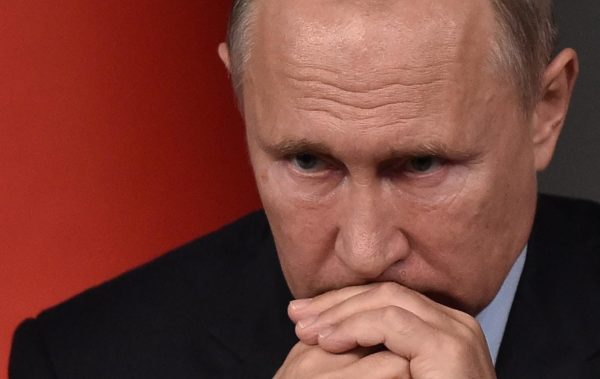By Robert Hart
TOPLINE
Russian President Vladimir Putin has reportedly walked back demands that Europe must pay for Russian gas in rubles, according to German Chancellor Olaf Scholz and Italian Prime Minister Mario Draghi, staving off a potential showdown that risked severe energy disruption across Europe.
KEY FACTS
At a press conference on Thursday, Italy’s Draghi said Putin had told him European buyers can continue to make gas purchases in euros, according to news reports.
Those payments would have to be converted to Russia’s local currency, the ruble, inside Russia, Draghi said, without giving details on how such an exchange system would work.
Draghi said he believed it would not have been easy to change the currency “without violating contracts.”
Kremlin spokesperson Dmitry Peskov on Thursday said buyers would still need to obtain rubles in exchange for the dollars or euros specified in the contracts, though he did not explain how buyers could obtain the rubles, according to Bloomberg.
Draghi’s comments echo similar reports from German officials on Wednesday, who said Putin provided similar assurances on payment to Scholz in a phone call.
KEY BACKGROUND
In response to harsh Western sanctions and “economic war” against Russia, Putin demanded “unfriendly nations” pay for Russian gas in rubles. Leaders from the wealthy G7 group of nations rejected the demand and European leaders questioned the legality of such a move in an industry dominated by long-term contracts. Russian gas accounts for around 45% of European gas imports—the bloc imports 90% of its gas—and is a major source of revenue for the Kremlin. Germany activated emergency measures to prepare for possible gas shortages and rationing over the standoff.
WHAT TO WATCH FOR
Speaker of the Russian Duma Vyacheslav Volodin warned world leaders on Wednesday that all major exports from Russia could soon be in rubles. In addition to gas, this could include fertilizer, grain, metals, oil and coal, he said.
TANGENT
The U.K. widened sanctions against Russia on Thursday, targeting “Putin’s propaganda” and state media. It directly sanctioned Kremlin-backed media outlets TV Novosti, which owns RT, and Rossiya Segodnya, which controls the Sputnik news agency, in addition to leaders of Gazprom-Media, RT and Sputnik International Broadcasting. The U.K. also sanctioned Russian TV host Sergey Brilev—who it calls a “propagandist”—and prominent Russian Colonel-General Mikhail Mizintsev, known as ‘the butcher of Mariupol.’


Leave a Reply
You must be logged in to post a comment.